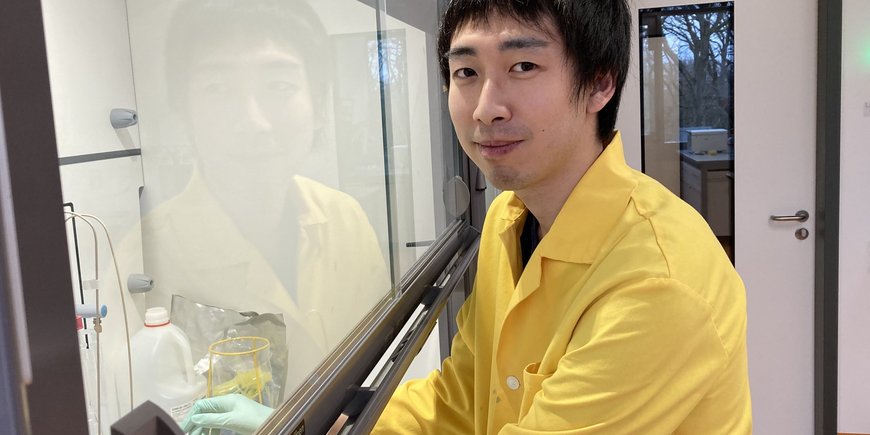The European Consortium for Ocean Research Drilling (ECORD) awards Toshiki Nagakura with the 'ECORD Research Grant for outstanding Early Career Researchers'. This grant goes to young scientists conducting innovative research related to the International Ocean Discovery Program. It is intended to cover travel, laboratory or other costs associated with the studies for the PhD thesis, which should preferably be conducted at an institution other than the applicant's home institution. It is intended to encourage new collaborations and the acquisition of new scientific expertise. Nagakura will use the €2300 award to fund the one-month research stay at the Japan Agency for Marine Science and Technology (JAMSTEC).
Toshiki Nagakura's dissertation project in section 3.7 - Geomicrobiology focuses on the degradation of organic matter in hydrothermally influenced deep marine sediments in the Guaymas Basin, which is characterised by active submarine volcanism. The most important process in the degradation of organic matter in marine sediments is sulphate reduction. Nagakura is measuring this process in drill core samples taken from depths ranging from a few metres to hundreds of metres below the seafloor during an during an Expedition of International Ocean Discovery Program (IODP).
The work at the Japanese marine research facility should provide information about what kind of nutrients sulphate-reducing microorganisms utilise in the marine sediments of the Guaymas Basin and whether they form symbioses with other microorganisms. In combination with the work at the GFZ, where Nagakura mostly works on incubation experiments in order to quantify the turnover of radioactively labeled compounds, these data will help to understand the survival strategies of microorganisms in this deep and hot environment.








![[Translate to English:] Torsten Sachs in front of a climate station on a field](/fileadmin/_processed_/3/9/csm__TorstenSachs_bearbeitet_GS_4a1365ef84.jpeg)

![[Translate to English:] left image flood at the Ahrtal: image from above, several houses are flooded; left image:: Heidi Kreibich;](/fileadmin/_processed_/4/4/csm_Bild2_9af0130e9f.png)



![[Translate to English:] Start der Vega Rakete](/fileadmin/_processed_/6/4/csm_20231201-kachel_Vega-VV23-launch_ESA-CNES-Arianespace_706716b68c.jpeg)









![[Translate to English:] Poster exhibition at the Brandenburg Hydrogen Day at the GFZ, some participants in the foreground](/fileadmin/_processed_/6/5/csm_Erster_Brandenburgischer_Wasserstofftag_GFZ_402fcec95e.jpeg)
![[Translate to English:] Group picture of the participants](/fileadmin/_processed_/9/4/csm_20231108_CAWa-Workshop-Tashkent_Gruppenbild_99ea779d8a.jpeg)

![[Translate to English:] [Translate to English:] Hörsaal](/fileadmin/_processed_/e/6/csm_H%C3%B6rsal_e21ac645fb.jpeg)


![[Translate to English:] The Delegations in the Historic Library on the Telegrafenberg. In the back there are from left to right, the Dutch Ambassador for Germany, Ronald van Roeden, the Dutch Minister for Education, Culture and Science, Robbert Dijkgraaf and the scientific director of the GFZ, Susanne Buiter.](/fileadmin/_processed_/d/b/csm_Kachel-2_9eba4b4212.jpeg)

